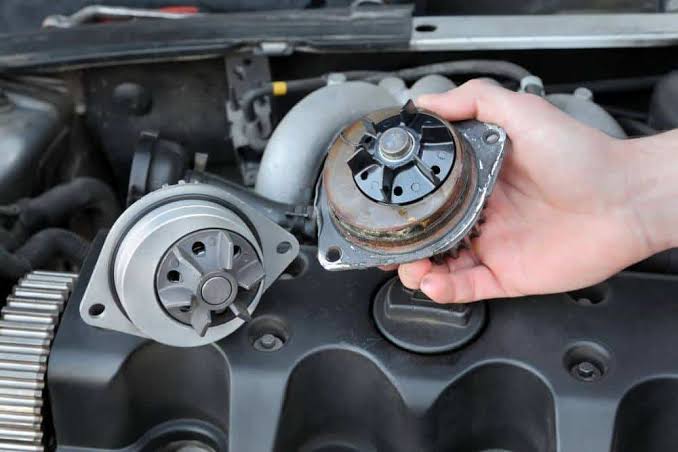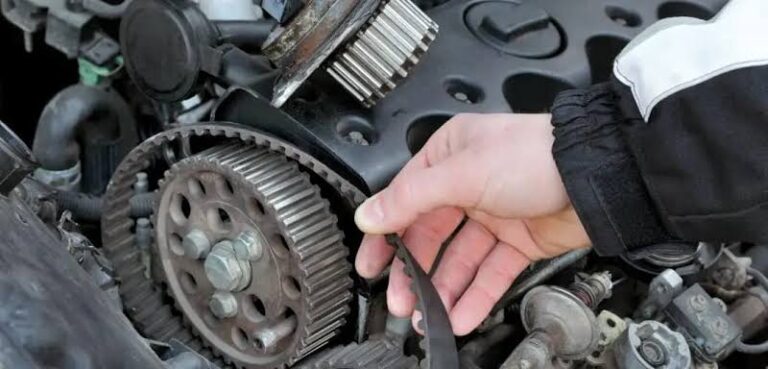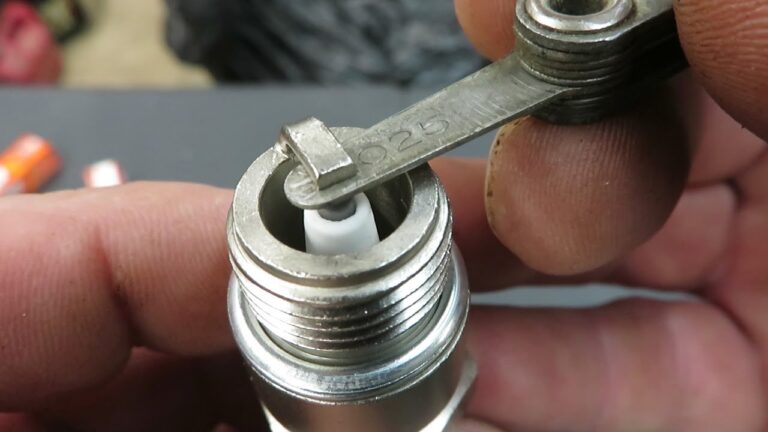Does a Bad Catalytic Converter Make a Noise?

A catalytic converter is an essential part of your car’s exhaust system, responsible for reducing harmful emissions. When it starts to fail, it can exhibit various symptoms, including unusual noises. Understanding these signs can help you determine if your catalytic converter needs repair or replacement.
What Does a Catalytic Converter Do?
1. The Role of the Catalytic Converter
The catalytic converter is designed to convert harmful gases, such as carbon monoxide and nitrogen oxides, into less harmful emissions like carbon dioxide and water vapor before they exit the exhaust system.
2. How It Works
Inside the catalytic converter are chemical-coated substrates that facilitate the conversion process. The efficiency of this component is crucial for meeting environmental standards and maintaining engine performance.
Can a Bad Catalytic Converter Make a Noise?
1. Yes, It Can Make Noise
A failing catalytic converter often produces distinct noises due to internal damage or blockages. These noises may vary depending on the type of failure.
2. Common Noises from a Bad Catalytic Converter
- Rattling Noise: A rattling sound, especially when starting the car, may indicate that the internal components or honeycomb structure have broken apart.
- Whistling or Hissing Noise: A partially clogged catalytic converter can create a whistling or hissing noise as exhaust gases struggle to pass through.
- Popping Noise: A completely clogged converter may cause exhaust backpressure, leading to popping sounds in the exhaust system.
What Causes Catalytic Converter Noise?
1. Internal Damage
The ceramic or metallic substrate inside the catalytic converter can crack or break due to age, overheating, or physical impact. These broken pieces can rattle inside the casing.
2. Exhaust Blockage
Over time, the catalytic converter may become clogged with carbon deposits or debris, restricting exhaust flow and causing unusual noises.
3. Excessive Heat
An engine running too rich (excess fuel) or misfiring can cause unburned fuel to ignite in the catalytic converter, leading to overheating and damage.
Symptoms of a Failing Catalytic Converter
Aside from unusual noises, there are several other signs that your catalytic converter may be failing:
1. Check Engine Light
A malfunctioning catalytic converter often triggers the check engine light. A diagnostic scan can reveal related error codes, such as P0420 (Catalyst System Efficiency Below Threshold).
2. Reduced Engine Performance
A clogged catalytic converter can restrict exhaust flow, leading to reduced engine power, poor acceleration, and lower fuel efficiency.
3. Sulfur or Rotten Egg Smell
A failing converter may emit a strong sulfuric odor due to unprocessed exhaust gases.
4. Excessive Heat Under the Vehicle
A clogged catalytic converter can cause excessive heat buildup in the exhaust system, which may be noticeable under the car.
How to Diagnose a Bad Catalytic Converter
1. Listen for Noises
Pay attention to rattling, whistling, or popping sounds, particularly when starting the vehicle or accelerating.
2. Visual Inspection
Look for signs of external damage, discoloration, or excessive heat on the catalytic converter.
3. Backpressure Test
A mechanic can perform a backpressure test to determine if the catalytic converter is clogged.
4. Temperature Test
Using an infrared thermometer, you can measure the temperature difference at the inlet and outlet of the catalytic converter. A significant discrepancy may indicate a blockage.
Can You Drive with a Bad Catalytic Converter?
1. Temporary Driving
You may be able to drive with a failing catalytic converter for a short time, but it’s not advisable. A completely clogged or broken converter can damage other engine components.
2. Legal and Environmental Concerns
Driving with a bad catalytic converter can increase emissions, potentially violating local environmental regulations.
Repair or Replace a Bad Catalytic Converter
1. When to Repair
In some cases, minor issues, such as blockages or contamination, can be resolved by cleaning the catalytic converter.
2. When to Replace
If the internal structure is damaged or the converter is completely clogged, replacement is the only option. The cost typically ranges from $900 to $2,500, depending on the vehicle and converter type.
3. Preventative Measures
- Regularly maintain your vehicle, including oil changes and spark plug replacements.
- Address engine misfires and other issues promptly to prevent unburned fuel from damaging the converter.
FAQs
1. What Does a Bad Catalytic Converter Sound Like?
A bad catalytic converter often produces a rattling sound when starting the car or accelerating. Other noises may include whistling or popping sounds.
2. Can a Catalytic Converter Be Cleaned?
Yes, in some cases, chemical cleaners can remove minor blockages. However, cleaning may not fix internal damage or severe clogs.
3. What Happens If I Don’t Replace a Bad Catalytic Converter?
Ignoring a failing catalytic converter can lead to reduced engine performance, increased emissions, and potential damage to other components.
4. How Long Does a Catalytic Converter Last?
Most catalytic converters last 10 years or more, but their lifespan depends on driving habits, fuel quality, and maintenance.
Conclusion
A bad catalytic converter can indeed make a noise, with rattling being the most common symptom. If you notice unusual sounds or other signs of failure, it’s crucial to address the issue promptly to avoid further damage and costly repairs. Regular vehicle maintenance and addressing engine problems early can help extend the life of your catalytic converter. If in doubt, consult a professional mechanic to diagnose and resolve the problem efficiently.
Also Check:
• Does a Bad Water Pump Cause Overheating?






One Comment